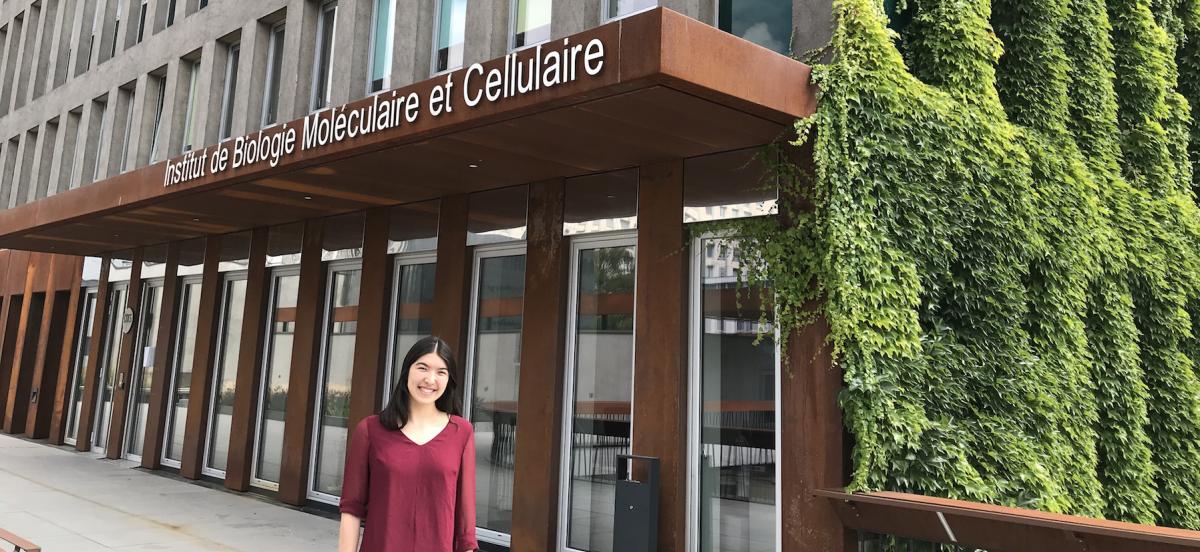Summer Centered: Mallory Kastner '21 Tries on Some Genes

Mallory Kastner outside her lab in Strasbourg, France.
Details
The biology and environmental studies double major is spending her summer at a genetic engineering lab in her hometown of Strasbourg, France.
Oftentimes, the workplace offers just as many opportunities for an intersection of academic interests as the classroom. This has been the case for Mallory Kastner ’21, a double major in environmental studies and biology. For Kastner, a lab in her hometown of Strasbourg, France, has been the perfect place to put her two majors in conversation with each other.
Funded by the Marian E. Koshland Integrated Natural Sciences Center’s Summer Scholars program, Kastner is assisting in the production of “gene drives” at the Institut de Biologie Moléculaire et Cellulaire (IBMC). The project hopes to pioneer an innovative method of countering malaria by genetically engineering a breed of mosquitoes, normal carriers of the disease, that can resist the infectious parasite.
“I spend about half my time working directly with the mosquitoes: sorting them, making crosses, dissecting them, and doing experiments,” said Kastner. “The other half [is spent] doing molecular biology in the lab, preparing what we need to genetically engineer them.”
The research offers the rising junior plenty of time in the lab to exercise her biology experience. Though not immediately visible, her background in environmental studies is just as advantageous for the work. Gene drives are just one example of efforts being made in the field of genetic engineering that offer an alternate solution to biological problems, such as disease, by coding nature to independently remedy them.
“This work has large environmental implications, as it is a hopeful response to the widespread use of insecticides, which select for resistant mosquitoes, and climate change, which allows the mosquitoes to migrate to newly warmed places,” Kastner said. “Gene drives could potentially provide an alternative to insecticides, and reduce their use, but they still have a long way to go before they could be effective and controlled sufficiently.”
The project’s dual concern for innovating biological research while aspiring to remain ecologically conscious reflects Kastner’s academic background perfectly. Striking this balance between the two is exactly what brought the double major to the opportunity.
“My passion for environmental issues and my curiosity about life with biology makes this topic really fascinating, so the concept of gene drives is really at the intersection of both of my majors and interests,” she said.
The job has also taught Kastner several valuable lessons about the practicalities of applied science.
“Unlike the straightforward genetics that we learn in class, where gene distribution from parents to descendants is relatively straightforward, things often don’t go the way we expect them to,” she stated. “In actual experiments, and especially with genetic engineering, there are many surprises. It has definitely proven to me that biology has a true complexity that one does not read about in a textbook!”
The experience Kastner has gained should prove useful as she aspires to continue down the path she’s embarked on, as she relies on both of her studies to inform the other.
“To me, science is foundational to my understanding of the environment,” she said. “I, therefore, hope to attain a strong base in science, and this internship is one of the first steps towards that.
“Summer Centered” is a series exploring our students’ Center-funded summer work.



